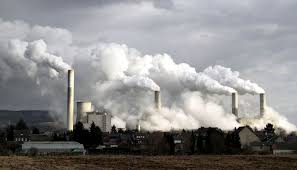Delhi is rated as the most polluted city in India and yet people are least concerned about it. The factors that have multiplied in polluting our air remain unnoticed and unchecked to a greater extent. The gravity of the problem requires that the very issue becomes a major political issue at the time of elections and occupies space in our states as well as national budget.
The measures taken are partial and half-hearted. More and more people are getting affected but so far the issue, the cause and the concern has not been addressed accordingly. The menace of air pollution calls to be tackled on a war footing with comprehensive approach, locally and globally. Let the intensity of this silent killer goes down every minute of every hour of the day in order to make our cities a better place to live in where people can breathe free air.
Dr. Maaz ul Haq, who has done PG Diploma in Asthma and Food Allergies from Cross Country University, in Florida, and is an Asthma advisor and runs a clinic and holds breath-free camp in South Delhi, told Radiance that recently there has been 20 to 25 per cent increase in Asthma patients. People who are living in Delhi might not have these problems when they had been at their native places but after coming to Delhi they complain of respiratory problems and the intensity and the nature of these problems vary from patient to patient.
On 6 August, the Union Environment Minister, in his written response to a question in Rajya Sabha on impact of air pollution, said that more than 35,000 people had died due to acute respiratory infections (ARI) in India in the last decade. Another study published in Environmental Science and Technology journal claimed that average 80 people die due to foul air daily in Delhi. According to another estimate, 30,000 people die in Delhi because of air pollution annually, while globally 3.2 million deaths are reported due to ambient fine particulate matter (PM2.5) annually.
In May, the World Health Organisation (WHO) report claimed that deaths due to air pollution have increased fourfold across the globe over the past decade and China and India were termed as the worst affected countries. In India, the Air Prevention and Control of Pollution Act was passed in 1981 to regulate air pollution. In 2013, on the Environmental Performance Index, India was ranked 155 out of 178 countries. As per Lancet study, air pollution was found to be the sixth biggest killer. Surprisingly, of the world’s top 20 polluted cities, 13 are in India as compared to three in China. The Delhi Court has recently expressed serious concern over high levels of particulate matters in the air, affecting the health of the people and asked the government of Delhi to take steps to check unregulated building activities and plant trees.
Nayeem Raza, who is a pharmacist and general secretary of All India Unani Tibbi Congress, said that he had personally experienced that in the last three years there had been substantial increase in the number of patients suffering from respiratory problems because of air pollution. In Okhla area, the dust particles from the construction materials get spread to other nearby localities and thus pollute our air. In developed countries, the construction place is covered so that the dust particles do not get spread to other areas. The best procedure, as per his experience and knowledge, is that people should try to improve their immunity which he believed is the best way to counter the menace of air pollution.
Athar Hasan, who is working in an Export House at Okhla Industrial Area, Phase-I, while replying to a question, told Radiance that more and more trees should be planted and unauthorised vehicles without licence should not be allowed to ply on roads. People should rise above party affiliation and must raise their voice, and political parties having risen above politics should address the issue accordingly.
Successive Delhi governments have not been serious about improving the notoriously bad quality of air that people breathe in the national capital. As pollution gradually peaked to alarming levels, governments sat on special ‘air quality’ funds, official documents accessed by Mail Today reveal. In the last seven years, the Delhi government collected Rs. 385 crore to fund its war on air pollution, but more than 85 per cent of this money has not been used.
The present government in Delhi led by AAP has commissioned a study to IIT-Kanpur to develop a plan in order to improve Delhi’s air quality which has been found to be the worst in the world as per a study by WHO. The AAP government’s budget has prioritised public transport augmentation and total proposed expenditure in the transport sector in 2015-16 is Rs 5,085 crore, which is 23 per cent higher than that in 2014-15.
Mohammad Umair, pursuing B. Tech from Al Falah University, while speaking to Radiance, said that there is no doubt that the issue of air pollution is very alarming and it must be our socio-political agenda and efforts must be made at individual and government levels to address the problem.
The Kejriwal government, in its budget, has promised to use funds and generate awareness among people to control air pollution and let us hope for the best.
Beware of the Silent Killer
Delhi is rated as the most polluted city in India and yet people are least concerned about it. The factors that have multiplied in polluting


